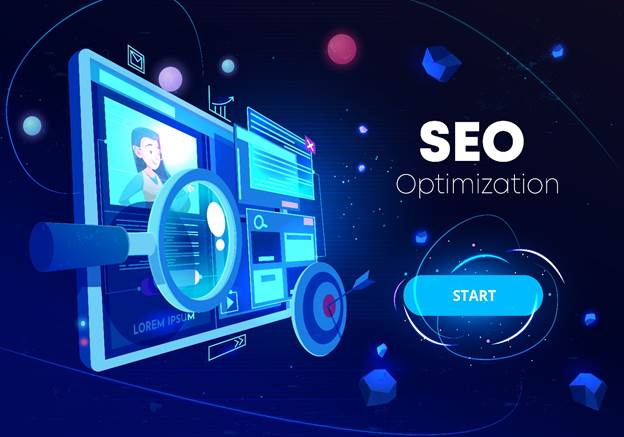Digital Marketing Trends 2025: What to Expect and How to Prepare
By Admin

Discover the top digital marketing trends shaping 2025. Stay ahead with smart strategies, AI tools, and customer-focused innovations.
Digital Marketing Trends 2025: What to Expect and How to Prepare
Digital marketing trends in 2025 are set to reshape how businesses connect with their audiences. As technology continues to evolve, staying ahead of these changes is crucial for marketers and business owners alike. Whether you're running a small business or managing a global brand, understanding the direction of digital marketing will help you stay competitive and relevant.

1. Artificial Intelligence and Machine Learning in Marketing
Artificial Intelligence and Machine Learning in marketing are changing the way businesses understand and connect with customers. These smart tools help brands work faster, save time, and make better decisions. From emails to ads, they improve how we market products by learning what works best.
Here’s how AI and ML make marketing better:
- Customer Insights
AI analyzes customer data to learn their likes, habits, and needs. This helps create personalized content that gets results. - Automated Tasks
Marketers save hours by using AI tools for email marketing, social media posts, and customer replies. - Smarter Ads
Machine learning helps show ads to the right people at the right time. It also helps reduce ad spend by improving targeting. - Chatbots & Support
Chatbots powered by AI offer round-the-clock assistance, quickly responding to customer queries and enhancing the overall user experience. - Content Recommendations
AI recommends content based on user preferences, helping keep them interested and engaged for a longer time. - Sales Forecasting
Machine learning predicts trends and customer behavior, helping teams plan better.
AI and ML are no longer the future—they’re the now. They give businesses a smarter way to reach the right audience and grow faster than ever.
2. Voice Search Optimization: The Future of Search
Voice Search Optimization is the process of improving your website so people can find it easily using voice assistants like Siri, Alexa, or Google Assistant. More people now search by talking instead of typing, so your content must be ready for voice.
Here’s why voice search matters and how to optimize for it:
- Use Natural Language
People speak differently than they type. Use simple, conversational phrases in your content. - Answer Questions
Voice searches often start with “how,” “what,” or “why.” Include clear answers in your content to match these queries. - Focus on Local SEO
Many voice searches are location-based, like “best coffee shop near me.” Make sure your business info is up-to-date. - Speed Up Your Site
Voice searches often happen on mobile. A fast-loading website improves your chances of being chosen by voice assistants. - Use Featured Snippets
Try to get your content into Google’s featured snippet box. Voice assistants often pull answers from there.
Voice search is growing fast. By using Voice Search Optimization, your business can stay ahead and connect with customers more easily.

3. Video Content Dominance: Why Video Rules the Internet
Video Content Dominance is changing how we see and share information online. People love watching videos because they’re fun, fast, and easy to understand. From YouTube to TikTok, video is now the top way brands connect with people.
Here’s why video is taking over:
- Quick and Clear
Videos help explain ideas faster than text. A one-minute video can say more than a long article. - Boosts Engagement
People stay longer on websites with videos. They also like, share, and comment more on video posts. - Great for Mobile Users
Most people watch videos on their phones. It’s easy to click, watch, and enjoy anywhere. - Improves SEO
Search engines love videos. Adding video to your site can help it rank higher on Google. - Builds Trust
Seeing a real face or demo builds trust. Videos create a stronger sense of connection between customers and your brand.
Video isn’t just a trend—it’s the future. With Video Content Dominance growing every day, brands that use video smartly will stay ahead.

4. Understanding Digital Analytics: Turning Clicks into Clarity
Digital Analytics helps businesses understand what’s happening online. It collects data from websites, apps, and ads to show what users like, where they click, and how long they stay. This information helps brands make smarter decisions.
Here’s why Digital Analytics matters:
- Tracks User Behavior
It shows what people do on your site—what they click, read, and ignore. - Improves Website Performance
By seeing what works and what doesn’t, you can fix slow pages or confusing layouts. - Boosts Marketing Results
Analytics tells you which ads bring the most traffic or sales. - Helps Understand the Audience
You can see where your visitors come from, what devices they use, and what content they love. - Supports Business Growth
With the right data, businesses can save money, reach more people, and grow faster.
In short, Digital Analytics turns numbers into insights. It’s the key to doing better online, whether you're running a blog or an online store.

5. Digital Advertising Trends 2025: Smart Marketing in the Online World
Digital advertising is a powerful way for businesses to reach people online. From social media ads to search engine results, it helps brands get noticed by the right audience at the right time. Whether on a phone, tablet, or computer, digital ads are everywhere—and they work.
Here’s why digital advertising matters:
- Targets the Right People
You can show your ad to users based on age, interests, or location. - Tracks Performance in Real-Time
See how many people clicked, bought, or visited your site—instantly. - Saves Time and Money
Unlike traditional ads, you can start small, adjust quickly, and stay on budget. - Boosts Brand Awareness
Well-placed ads help people remember your brand and build trust. - Works Across Platforms
Use it on Google, Facebook, Instagram, YouTube, and more.
Digital advertising isn’t just for big companies—it’s for everyone who wants to grow online. It’s fast, flexible, and full of opportunity.

6. SEO: Helping People Find You Online
SEO (Search Engine Optimization) is how websites show up on Google and other search engines. It helps your page rank higher so more people can find your business, blog, or store. Good SEO means more visitors, more trust, and more success online.
Here’s why SEO is so powerful:
- Brings Free Traffic
Instead of paying for ads, SEO brings people to your site for free. - Builds Trust
People trust sites that show up first in search results. - Works Long-Term
Unlike ads that stop when the money runs out, SEO keeps working over time. - Improves Website Quality
SEO helps you create helpful, easy-to-read content that users (and Google) love. - Targets the Right Audience
You show up for searches that matter to your business.
In today’s digital world, SEO is not a choice—it’s a must-have. With the right strategy, your site can stand out and grow every day.

7. Social Media Marketing: Connect, Engage, and Grow
Social media marketing is a smart way to promote your business on platforms like Facebook, Instagram, TikTok, and X (Twitter). It helps you reach people where they already spend their time—online. Whether you're selling a product or sharing your brand, social media makes it easy to connect with your audience.
Here’s why social media marketing works:
- Builds Brand Awareness
Your brand gets seen by more people, fast. - Engages With Customers
Likes, comments, and shares help build strong relationships. - Drives Website Traffic
Posts and ads send people straight to your website. - Cost-Effective Advertising
Reach thousands with just a small budget. - Real-Time Feedback
You can learn what people like and improve your content quickly.
In today’s digital world, being active on social media isn’t just fun—it’s powerful for growing your business.
8. Content Marketing: Share Value, Not Just Ads
Content marketing is a way of promoting your business by creating useful, interesting, or entertaining content instead of just running ads. This can be blog posts, videos, social media updates, or even infographics. The goal is to help your audience and build trust.
Here’s why content marketing is so powerful:
- Builds Trust
Helpful content shows people you know what you’re talking about. - Improves SEO
Good content helps your website rank higher on search engines. - Brings In Leads
People who enjoy your content are more likely to become customers. - Boosts Brand Awareness
Content spreads across the internet and gets your name out there. - Low Cost, Big Impact
It’s often cheaper than ads but brings long-term results.
In short, content marketing helps you connect with your audience by giving them real value—not just sales talk.
9. Influencer Marketing: Power of Online Voices
Influencer marketing is a strategy where brands team up with popular people online—called influencers—to promote products or services. These influencers have loyal followers who trust their opinions, making them great partners for spreading a message.
Here’s why influencer marketing works so well:
- Builds Trust Quickly
Followers trust influencers more than ads. - Reaches the Right Audience
You connect with people who are already interested. - Increases Brand Awareness
Your brand gets seen by thousands or even millions. - Boosts Sales
Personal recommendations often lead to quick purchases. - Cost-Effective Options
You can work with big names or smaller “micro-influencers” based on budget.
In a digital world, influencer marketing helps brands stand out by using real voices that people listen to every day.
10. Omnichannel Marketing: One Brand, Many Paths
Omnichannel marketing means giving customers a smooth and connected experience across all platforms—like websites, apps, social media, and stores. Whether someone shops online or in-person, the experience feels the same and personalized.
Why omnichannel marketing matters:
- Consistent Customer Experience
People get the same message no matter where they shop. - Stronger Brand Connection
It helps build trust and loyalty with your audience. - Better Communication
Customers can reach your brand anytime, anywhere. - Higher Sales Opportunities
More channels mean more chances to connect and sell. - Smart Use of Data
It uses customer info to improve shopping and service.
Omnichannel marketing helps businesses grow by making sure every interaction feels easy, helpful, and connected.

What is the future of digital marketing in 2025?
As we step into 2025, the future of digital marketing is set to evolve rapidly, driven by advancements in technology and changing consumer expectations. The digital landscape will continue to grow, and businesses that can adapt to these changes will find new opportunities to connect with their audiences. One of the major trends is the increased role of artificial intelligence (AI) and machine learning. These technologies will help businesses personalize content more effectively by analyzing customer behavior, making marketing campaigns more targeted and efficient.
Voice search will also play a significant role in shaping the future of digital marketing. With the widespread adoption of smart speakers and voice assistants, consumers will increasingly rely on voice commands to search for products and services. As a result, marketers will need to optimize their content for voice search, ensuring that it answers questions directly and in a conversational tone. This shift will require businesses to rethink their SEO strategies and focus on long-tail keywords and natural language.
In addition, video marketing will continue to dominate in 2025. Short-form videos, live streaming, and interactive video content will become essential tools for businesses looking to engage with their audience. Video has proven to be one of the most effective ways to capture attention and create meaningful connections with consumers. As video platforms like YouTube, TikTok, and Instagram continue to grow, businesses will need to embrace these channels to stay relevant and connect with their target audience.
Data privacy will also be a key focus in the future of digital marketing. With growing concerns about online privacy, consumers are becoming more cautious about sharing personal information. Marketers will need to prioritize transparency and secure data practices to build trust with their audience. Ensuring that customers feel safe while interacting with brands online will be crucial for long-term success.
In conclusion, the future of digital marketing in 2025 will be shaped by advancements in AI, voice search, video content, and data privacy. Businesses that stay ahead of these trends and adapt their strategies accordingly will have a competitive edge in the ever-evolving digital landscape. By embracing these changes, marketers will be able to create more personalized, engaging, and secure experiences for their customers, ensuring their continued growth and success in the years to come.







